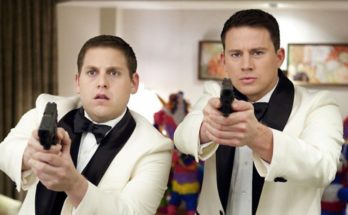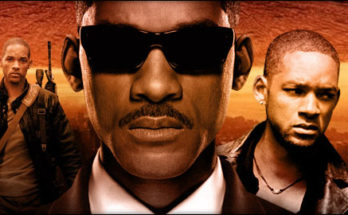The elements of Dan Curtis’ original gothic soap opera, Dark Shadows, would seem ideal material for a Tim Burton film. Atmospheric horror, eccentric characters, elaborate costumes, and whimsical humor are among the director’s fortes. Yet with Burton’s feature length adaptation, there’s almost too much of his signature proclivities and not enough restraint to allow for a cohesive vision. Despite its exceptional cast, the moments of spirited entertainment can’t outweigh the overwhelming strangeness that permeates a movie that feels like a mishmash of leftover pieces from Burton’s finer accomplishments. The original series was often criticized for its slower pacing – the film version is guilty of the opposite, as so many characters and storylines continually weave together until we’re left with little satisfaction for virtual strangers and previously unmentioned subplots that take center stage during the conclusion.
Barnabas Collins (Johnny Depp), the prestigious heir to a wealthy New England fishing company, spurns the love of lowly servant girl Angelique Bouchard (Eva Green); little does he know the tortuous future she has in store for his family and legacy. Murdering his parents and his true love Josette (Bella Heathcote), the vengeful witch also curses him with vampirism and seals him inside a coffin. When he’s accidentally released 200 years later, Barnabas returns to his castle where his ancestors, still plagued by Angelique’s unrelenting wrath, live in isolation and despair. Determined to return his family to its former glory, the tenacious vampire sets about restoring their business and fortune while inadvertently setting the stage for a cataclysmic confrontation with his scorned former lover.
Morbid magic, ancient curses, and a story patterned from Frankenstein’s monster boasts no originality for Tim Burton’s latest gothic horror/adventure/romance. Borrowing the title from a 1960s’ soap opera oddity barely gives this film enough of a basis to call it a theatrical adaptation, and due to a complete dismissal of the source material’s tone, style, and attitude, there was no reason to swipe even that. It’s a Tim Burton movie through and through, adopting an overtly gothic, shadowy fantasy with cinematography like Sweeney Todd and sets like Sleepy Hollow. Every character is pale and vampire-like – vastly beyond the actual ghosts and toothy undead.
While it tires visually early on, Eva Green’s makeup effects during the ending are simply stunning, contrasting the extreme inadequacy of the spontaneous nonsense randomly twisted into the climax. Lavish happenings and comedic activities feel devised on the spot, mixing together story elements of Death Becomes Her, peculiar personas reminiscent of Beetlejuice, and sudden adventuresome chaos like Jumanji. Intermittently amusing dialogue and the momentary hilarity of transplanting a proper, old-fashioned cavalier into a world of McDonald’s, hippies, and Alice Cooper, wear off too soon for the other segments of unimaginative fluff to succumb.
Dark Shadows also suffers from the same major fault that many supernatural thrillers encounter: a complete lack of definition for the otherworldly powers. It’s never established exactly what Angelique is capable of (concerning her sorcery), nor to what extent Barnabas is immortal or vampiric (he avoids the sun, but what else?). Without boundaries, the characters never convincingly emote distress, bravery, sacrifice, or a sense of self-preservation. Similarly, even though the movie isn’t trying to be scary (save for the introduction of Josette’s ghost, which is surprisingly creepy), when the characters don’t take death and destruction seriously, audiences aren’t likely to sympathize or care for the protagonists. With an overlarge cast, everyone steals attention away from the roles that really need the focus – the few integral to the story that become particularized off screen more often than on.



